- Home
- Heather Graham
Captive Page 32
Captive Read online
Page 32
Wildcat knew he was here. He had come briefly in the night to tell James that Otter had conceded Running Bear’s right to the woman. She would be safe from Otter in the future. Otter was pleased that his attack had been so perfectly planned. Only a few soldiers had escaped the slaughter. Wildcat had spoken very quickly, warning James that white soldiers were rumored to be in vast numbers all around St. Augustine. Though James was safe from Otter, he had best take care on all other fronts.
Wildcat was a strange friend for James. No one, not even Osceola, was more determined to dig in. He could battle and kill without blinking and speak his mind clearly no matter what the opposition or consequence. He was a man of integrity who could also keep completely quiet when necessary, and in the bonds of friendship he could be utterly trusted.
So much for Otter and Wildcat.
He didn’t need thoughts of either man to warn him anew that his time in this strange haven was limited.
She was still walking. With such dignity. Yet still, she … swayed. She was so angry, aloof, disdainful, proud …
Delectable.
He rose swiftly, agile, silent. It was true that his silent speed was uncanny.
Yet she heard him. In the split second before he caught up with her, tackled her, and brought them both down to the earth.
“Enough!” she shouted to him, gasping for air, struggling furiously against his hold. “Enough, enough, enough—”
“Enough!” he agreed, his fingers lacing with hers, forcing them against the damp earth.
Yet as his body straddled hers and his lips silenced any further argument, he realized with a sinking feeling of anguish that it would never, ever be enough.
They had to talk with the white men. Another parley. The events taking place recently demanded that it be so.
Staring into the fire, seated before it, Osceola thought these things with a great deal of pain in his heart.
Yes. He had to talk. The children were starving. The women were bones. The warriors themselves were little more than skeletons. Some temporary truce must be made.
If he went in to talk, he realized, he might never walk away again. He had done things the whites did not understand and would never forgive. He had waged the war against them that they had waged against him and his people.
He was interrupted in his weary thoughts by the sudden arrival of Otter. The warrior stalked with his typical fury to stand before the fire opposite Osceola.
Osceola refused to acknowledge him, so Otter sat before him.
“We need Running Bear. Now,” Otter told Osceola. “That he fought me I will accept, for I challenged him to do so. That he took a white woman whose scalp might now hang from my rifle, I accept, for he fought for her. I have granted his right to her, sworn her safety from me. But he stays deep in the hammock now when he is needed. He stays with the white woman, forgetting us. You know where he is. Tell me. I will go for him now.”
Osceola looked up at Otter. Yes, he knew where Running Bear had gone. Wildcat had been to see him very early one morning, before the dawn had begun to brighten the sky. They had spoken briefly. Running Bear had the problem now of the white woman, but he trusted Osceola, and Osceola would not betray that trust.
Wildcat could not go to Running Bear again. Wildcat had felt he had no choice when his father’s messenger had come to tell him that the whites had demanded King Philip bring in his son or perhaps face the hangman’s noose. So Wildcat, a fierce warrior they needed badly, was a captive of the whites.
But there were others who could be trusted to summon Running Bear. Despite Otter’s words of honor, Osceola could not trust Otter with directions to the secret copse.
Osceola was suddenly very tired.
There were days when he could rise and feel as well as he ever had, days when it seemed that strength and sun and life came with swift energy to his limbs. Then there were times when he believed that he dreamed those days, for some mornings when he woke, he could almost imagine that death slept atop him like some dark, blanketing form. As it did so often lately, Osceola’s mind drifted back in memory.
Wild Orchid had been so beautiful then. The best that three shades of men had to offer. Her skin was deeper than copper, her eyes darker then black. Her hair was like the wing of a raven, curling beautifully from her Negro heritage while her white blood softened her features. He had warned her often enough when they had been young to keep clear of the soldiers, but she had loved life. Loved to move, to dance, to run, and so, long before his run-in with Wiley Thompson that had become so well-known, he had become enemies with the man. Because Wild Orchid had come too close to the whites, and she had been seized as a runaway slave. It hadn’t mattered that he had explained the beautiful mulatto was his wife. She had been taken from him, and he hadn’t had the strength or the power then to fight and demand that she be returned to him. He had been able to do nothing but follow behind through the bush as the soldiers had taken her, chained, to St. Augustine. All along the way he had looked for a chance to attack the whites and rescue her. They had been too strong. He had all but wept with fury and frustration. Then he had waited for word of her sale, and he had learned that she had been stripped down on the block and sold to a gaunt-faced white man who intended to take her to a plantation near Tallahassee. They had laughed while she stood on the block. They had commented on what fine sport she would make in a white man’s bed, how lush and erotic her flesh would appear against the whiteness of cotton sheets.
He had been sickened, knowing then that to wage a war would mean sure death for him and so many others. They hadn’t planned as yet. They hadn’t gathered rifles and gunpowder. They were too weak. Yet even as he waited just south of St. Augustine, desperately plotting and planning, he had heard a woman’s joyous cry, shouting his name in greeting. And through the brush she had come running to him. Behind her, leading the pony she had ridden, were the McKenzies. Running Bear and his white brother. They had known, they had heard of the injustice, and they had gone to the overseer and persuaded the licentious bastard to sell her to them. At an exorbitant price, Osceola was certain, but neither brother would ever comment on it.
Now neither of his wives was so very young or fragile, but neither had he forgotten what that first hunger and passion of love could be, denying all reason and logic. Wild Orchid had been precious to him all these years, as had Morning Dew. He loved his children by both wives; he knew the strength and support of his family, all begun by love.
He could not deny James McKenzie his passion. Especially, he thought with a certain humor, since he had seen the red-haired woman himself.
“You will leave him be one more night,” Osceola said. “Let him watch the sun go down in his hammock one more time, see the colors streak the horizon, feel the kiss of the dew upon his flesh with the coming of the dawn.”
“Osceola, you forget the events that have taken place! We need him—”
“One more night will not change the war, not the history of our world or theirs. I will send for him myself come the morning,” Osceola said.
He would let McKenzie have one more sweet taste of his savage paradise before the world exploded upon them all.
General Thomas Sydney Jesup sat at his desk, studying again the war orders from Secretary of War Joel Poinsett. He closed his eyes morosely, damning his Florida duty. In fact, for the moment, damning the military altogether.
Let them come down from their high horses in Washington! he thought angrily. They had ignored him. Ignored his plea that they leave the Seminoles alone. Let them flee south. Live out their pathetic, starving lives in the no-man’s land that filled so damned much of the mosquito-infested peninsula.
He was a military man, a hard-core soldier. He had come to Florida from battling the Creeks, and he knew how to fight Indians. If he had ever said anything negative regarding any of his predecessors as to their stint of duty as commanders in Florida, he had let it be well-known that he retracted such statements. This was hell. A war that cou
ldn’t be won. He had quickly, painfully learned that the Seminoles could split their numbers and disappear into the terrain while his men floundered in hammock and swamp. He had come expecting to round up the Seminoles with all speed, and send them west to live. Poinsett was an able man, an incredibly able man, in Jesup’s opinion. But Jesup damned him just the same. Poinsett had left him no choice but to exterminate the Indians.
Jesup sighed, running his fingers through his white hair. His bitterness extended toward the enemies. Before the escape in June of the nearly seven hundred Indians from the center at Tampa, he had believed he had broken the resistance, that his war was all but over. But then those seven hundred had disappeared, with the wily Osceola at the head of it, or so it seemed.
He slammed a fist against the table. The Indians deserved no decency on his part. They knew nothing of any code of honor. They were slippery, cunning, treacherous.
If he had to use treachery against them in return, then so be it.
He set aside the missive from the secretary of war. He picked up his quill and began to pen the orders he would give in turn to General Hernandez.
His hand shook as he wrote. He set his quill down. And still his hand shook. A chill fell over him. He shook it off. He refused to admit that his ill feelings might forebode the damning consequences of his own actions, setting the cry of treachery upon himself for his lifetime, and all history yet to come.
The day had been a good one. They’d awakened to a powder blue sky, puffs of clouds moving across it. Teela had been ecstatic to catch a fish herself, spearing it through with lightning speed. He’d skinned it, they cooked it and ate it with nuts and fruit.
Now they played in the river. Teela had become an excellent swimmer. The water was filled with an abundance of sea cows, and Teela took great pleasure in them. She’d even decided that they weren’t ugly anymore. There were adorable, as charming as otters, as gentle as puppies.
“There!” she cried to James suddenly.
“Where, what?” he asked, turning.
She dove beneath the surface, caught his foot, dunked him thoroughly, then swam away with a practiced speed that startled even him. He sputtered to the surface. “Playing with fire again, eh, my love?” he shouted, swimming hard to pursue her. Damn. She was getting good. She reached the bank and raced out of the water, laughing and shrieking. He followed her. Despite the fact that she was a quick learner and swam very well indeed now, she hadn’t a chance against him on dry land. Yet even as he sped after her, he suddenly ground to a dead halt, staring past her to the entrance of the secluded copse.
There was a rider there, a very old black man on a gaunt gray mare. It was difficult to determine which was more pathetically thin, the man or the horse.
Osceola’s old servant, Riley, had come for him, he realized, the air all but sucked out of him with the knowledge that the days he had clung to so desperately had come to an end. That Riley had come already indicated trouble, for if things were normal, Wildcat would have been the one to come.
Teela had been looking back at James as she ran. Still laughing, she whirled around and shrieked in sudden terror as she nearly crashed into the black man who had dismounted from a horse. James found motion again, running swiftly enough to be there when she backed away from Riley, trembling. Perhaps Riley was a startling visage. He dressed in buckskin trousers and a white man’s shirt. A turban of bright cotton and egret plumes sat atop his dark head and cascaded down his back. It was a magnificent headdress, a gift from Osceola to a faithful servant. It made him appear, however, to be nearly seven feet tall.
James wound his arms around Teela, then eased her behind him. Her hands set upon his hips, the fullness of her naked body pressed against him as if he were a barrier of steel.
“Riley,” he said quietly. “Teela, it’s all right. It’s Riley. He offers us no harm.”
She was shaking still, but it occurred to him then just how greatly she trusted him.
“Don’t be afraid,” he said softly.
“I’m not afraid. I’m—I’m naked James.”
“Riley will take his clothes off, too, if you want.”
She slammed a fist against his back.
“Riley, have you something there Miss Warren might wear?” he asked.
Riley nodded gravely, tossing a satchel he carried down to James.
“Real clothing,” James muttered, bending down to open it. Teela quickly ducked down behind him. In the bundle he found a full, flared indigo-dyed skirt and a colorful pullover blouse. He turned and offered both to Teela, who scrambled into the items quickly and awkwardly, refusing to rise behind him until she was dressed.
“Coffee, Riley?” James suggested. His breeches were back by the cypress log, and it didn’t seem that Riley had brought anything for him.
“Coffee would be fine fittin’, Master James,” Riley said. The old man’s usage of both the Muskogee and Hitichi languages was fluent, but he had always addressed James by his English name and in the English tongue.
“Well, let’s all come along, then, shall we?” James said, starting back to his pants and their shelter. “Did you come alone?” Teela asked him. “I did, Miss Warren.”
“How did you know where we were?” Teela demanded.
“Osceola knows this place. Wildcat came before and talked to James. We knew where James would be when the time came.” James winced, stiffening his back for a moment. “Wildcat was already here?” Teela asked sweetly. “And we didn’t know?”
James found his breeches and scrambled into them. When he turned, old Riley was grinning and Teela looked flushed. “Master James, he knew. He knew.”
Teela turned her stare on James. Accusingly. He brushed past her to get water for the coffeepot. “We always knew that our time here was limited,” he told her.
She followed him to the water. “Your friend, this Wildcat, was the bird, right?” she demanded in a furious whisper. “I was, we were—” she sputtered. “And he was there!”
He sighed. “Wildcat was discreet. Since he did rather interrupt us in the middle of something.”
“Bastard!” she hissed.
“He has seen far more,” James said with a shrug. “Besides, it was dark.”
She started to shove him. He caught her hand and warned her harshly, “Teela, he came, he went. He didn’t mean to interrupt. He came to tell me we were completely safe from Otter. Now, my love, you behave, or I’ll have to paddle you black and blue to keep my standing—and perhaps my life—among the people. Riley is a good man but a damned talkative one.”
He didn’t give her a chance to obey or disobey, keeping one hand and a firm grip upon her arm and another on the coffeepot as he rose and headed back toward the hootie. Old Riley had already laid out some of the delicacies he had brought them, smoked deer meat and cornmeal cakes. Dragging Teela with him, James quickly had the chicory coffee going. As the fire lapped beneath the pot, James asked Riley, “What news?”
“Soldiers seized all of King Philip’s camp. King Philip was betrayed by his servant, whose woman was unhappy.” Riley paused to glance at Teela, silently warning against the evils of female influence. “Wildcat has gone in to the whites for his father’s sake. There is to be more talk. Osceola has sent messages to General Jesup, and General Jesup has said that there will be a meeting again. Running Bear, Coa Hadjo will speak for Osceola, but Osceola has asked that you accompany him and the others when they meet.”
James bowed his head. “He knows that I will come.”
Riley hesitated. He looked at Teela again. “Osceola says that you must know there is talk that you are the most dangerous of all Indians, a white Indian.”
“Why this talk?” James demanded, frowning.
“The white soldier, Warren, has said that you planned the murder of many men in order to steal his daughter. Warren says that you should be hanged.”
Teela gasped, horrified. “He is a liar!”
“There are many who will believe his lies,”
James said quietly.
“But I’ll tell them all that he’s a liar—” Teela began.
“Tell them what you will,” James said. “Some men will believe you, and some will not.”
“Then you can’t go in with Osceola!” Teela said. “James, you must stay hidden!” she insisted fervently.
“I have to go.”
“You cannot! You—”
“Teela!” he warned her, his voice low and grating, a harsh command that she stop.
Riley said, “You can keep your camp here until morning. Then Osceola asks that you meet with him tomorrow, behind the soldiers’ road that leads to the east.”
James nodded. “That will be fine.”
“That will not be fine—” Teela began.
James clamped a hand over her mouth, dragging her hard against his chest. “That will be fine,” he repeated.
Old Riley poured himself coffee and rose. “I will sleep behind the copse,” he told James. James nodded. Teela was fighting like a scalded wildcat against his hold. He gave her a firm shake, not daring to release her until Riley had made his way from the copse.
“You can’t go! You can’t go!” she told him, tears blinding her eyes.
He stared down at her, not replying. “You can’t, you can’t, you can’t!” she said, slamming her fists against his chest, beating him, pummeling him. He didn’t stop her. She kept it up until her blows were soft, until her words were sobs.
“We’ve a last sunset,” he told her. “You can’t go. You can’t—”
He hushed her with a slow, tender, heartbreaking kiss. Yet as darkness came, she was the one to refuse tenderness. To hold him fiercely. Make love with a wild, wicked, violent abandon.
But with sobs, not words. Now her very violence brought her to exhaustion. When at last she slept next to him, he cast a fur around his shoulders and left the copse, coming to Riley.
Awake, resting against an oak, Riley smiled grimly, as if he’d expected James.
“I must make arrangements for Teela. Osceola knows this.”
“Osceola has sent word to Jarrett McKenzie, and he and the young soldier Harrington will come for your woman.”

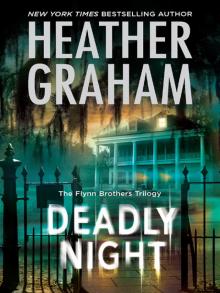 Deadly Night
Deadly Night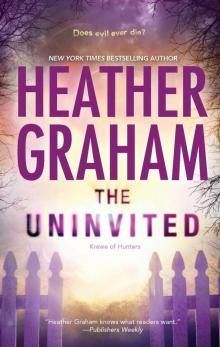 The Uninvited
The Uninvited Dust to Dust
Dust to Dust Heart of Evil
Heart of Evil A Perfect Obsession
A Perfect Obsession The Keepers
The Keepers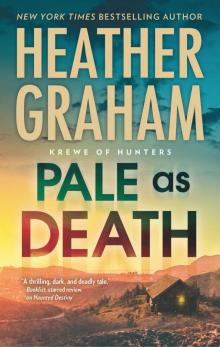 Pale as Death
Pale as Death Phantom Evil
Phantom Evil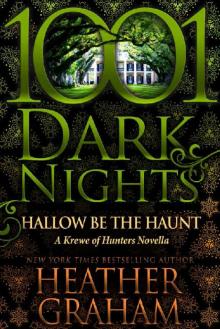 Hallow Be the Haunt
Hallow Be the Haunt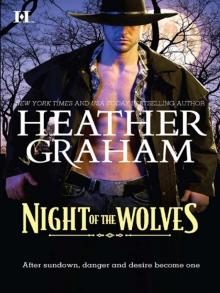 Night of the Wolves
Night of the Wolves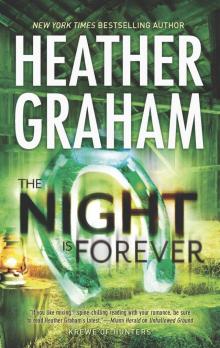 The Night Is Forever
The Night Is Forever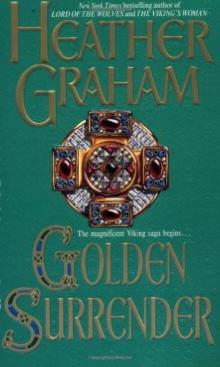 Golden Surrender
Golden Surrender Kiss of Darkness
Kiss of Darkness Beneath a Blood Red Moon
Beneath a Blood Red Moon A Dangerous Game
A Dangerous Game Ghost Shadow
Ghost Shadow Long, Lean, and Lethal
Long, Lean, and Lethal Fade to Black
Fade to Black The Rising
The Rising And One Wore Gray
And One Wore Gray Rebel
Rebel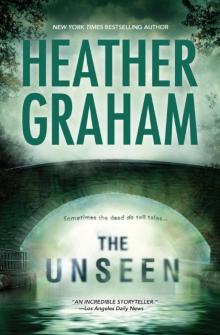 The Unseen
The Unseen The Night Is Watching
The Night Is Watching The Evil Inside
The Evil Inside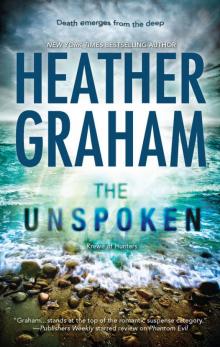 The Unspoken
The Unspoken The Night Is Alive
The Night Is Alive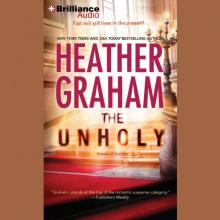 The Unholy
The Unholy Nightwalker
Nightwalker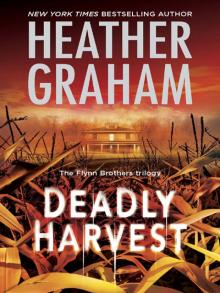 Deadly Harvest
Deadly Harvest An Angel for Christmas
An Angel for Christmas A Pirate's Pleasure
A Pirate's Pleasure American Drifter
American Drifter Realm of Shadows
Realm of Shadows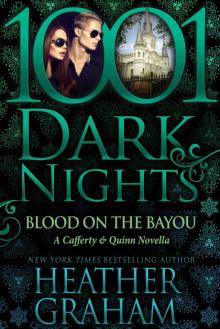 Blood on the Bayou
Blood on the Bayou Sacred Evil
Sacred Evil Dying to Have Her
Dying to Have Her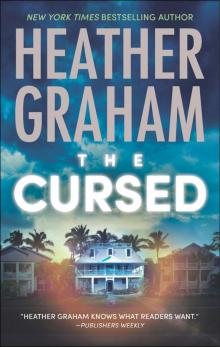 The Cursed
The Cursed Captive
Captive Hurricane Bay
Hurricane Bay Drop Dead Gorgeous
Drop Dead Gorgeous Ghost Memories
Ghost Memories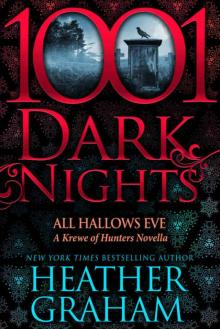 All Hallows Eve
All Hallows Eve Dying Breath
Dying Breath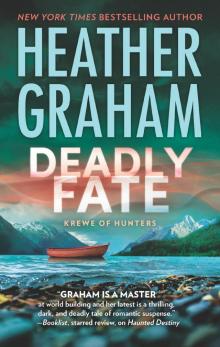 Deadly Fate
Deadly Fate The Dead Room
The Dead Room Lord of the Wolves
Lord of the Wolves Ghost Night
Ghost Night Ghost Walk
Ghost Walk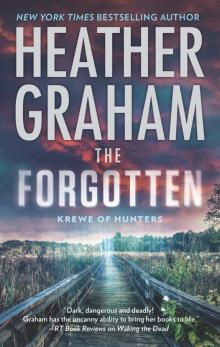 The Forgotten
The Forgotten Unhallowed Ground
Unhallowed Ground One Wore Blue
One Wore Blue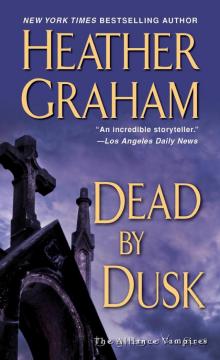 Dead By Dusk
Dead By Dusk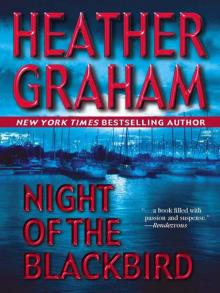 Night of the Blackbird
Night of the Blackbird The Dead Play On
The Dead Play On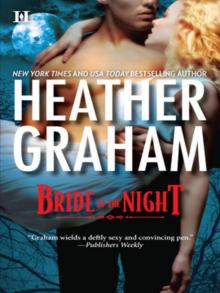 Bride of the Night
Bride of the Night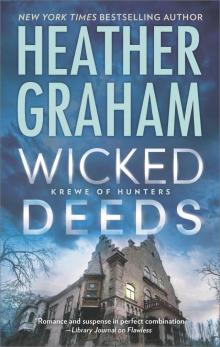 Wicked Deeds
Wicked Deeds The Forbidden
The Forbidden Triumph
Triumph Out of the Darkness
Out of the Darkness Love Not a Rebel
Love Not a Rebel The Last Noel
The Last Noel Tall, Dark, and Deadly
Tall, Dark, and Deadly The Death Dealer
The Death Dealer Dead on the Dance Floor
Dead on the Dance Floor Law and Disorder
Law and Disorder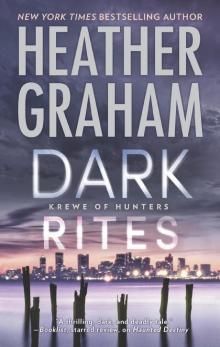 Dark Rites
Dark Rites New Year's Eve
New Year's Eve Hostage At Crystal Manor
Hostage At Crystal Manor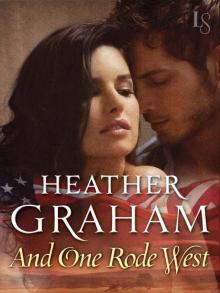 And One Rode West
And One Rode West Home in Time for Christmas
Home in Time for Christmas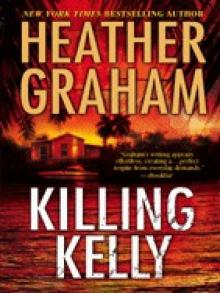 Killing Kelly
Killing Kelly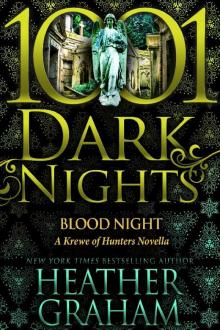 Blood Night
Blood Night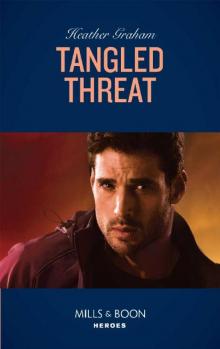 Tangled Threat (Mills & Boon Heroes)
Tangled Threat (Mills & Boon Heroes)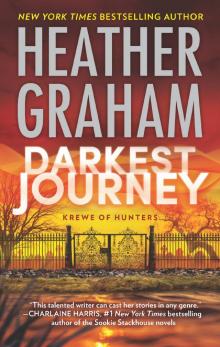 Darkest Journey
Darkest Journey Glory
Glory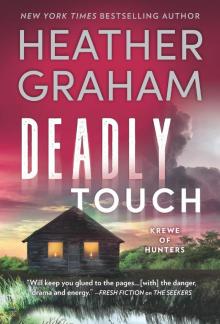 Deadly Touch
Deadly Touch An Unexpected Guest
An Unexpected Guest Night of the Vampires
Night of the Vampires Seize the Wind
Seize the Wind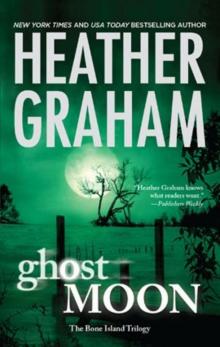 Ghost Moon
Ghost Moon The Vision
The Vision Dreaming Death
Dreaming Death Conspiracy to Murder
Conspiracy to Murder Horror-Ween (Krewe of Hunters)
Horror-Ween (Krewe of Hunters)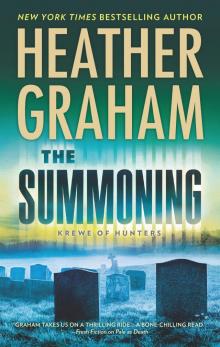 The Summoning
The Summoning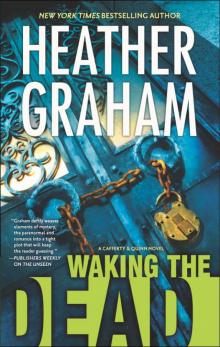 Waking the Dead
Waking the Dead Danger in Numbers
Danger in Numbers The Hidden
The Hidden Sweet Savage Eden
Sweet Savage Eden Tangled Threat ; Suspicious
Tangled Threat ; Suspicious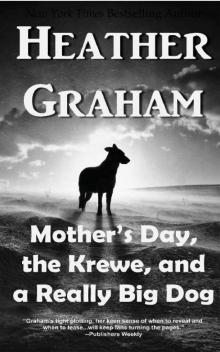 Mother's Day, the Krewe, and a Really Big Dog
Mother's Day, the Krewe, and a Really Big Dog Picture Me Dead
Picture Me Dead The Killing Edge
The Killing Edge St. Patrick's Day
St. Patrick's Day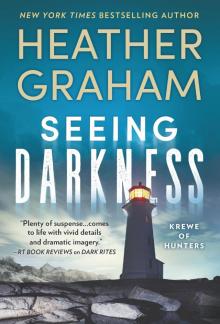 Seeing Darkness
Seeing Darkness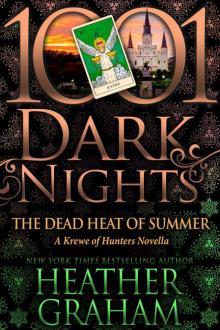 The Dead Heat of Summer: A Krewe of Hunters Novella
The Dead Heat of Summer: A Krewe of Hunters Novella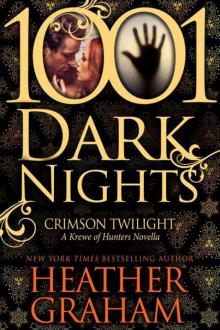 Crimson Twilight
Crimson Twilight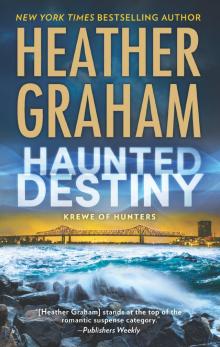 Haunted Destiny
Haunted Destiny Devil's Mistress
Devil's Mistress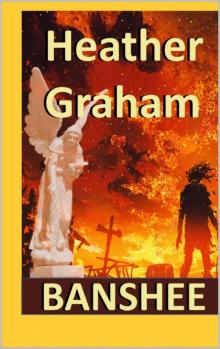 Banshee
Banshee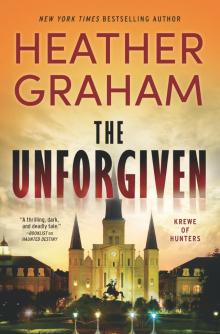 The Unforgiven
The Unforgiven The Final Deception
The Final Deception A Horribly Haunted Halloween
A Horribly Haunted Halloween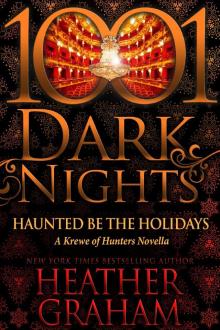 Haunted Be the Holidays
Haunted Be the Holidays Deadly Gift
Deadly Gift Easter, the Krewe and Another Large White Rabbit
Easter, the Krewe and Another Large White Rabbit Haunted
Haunted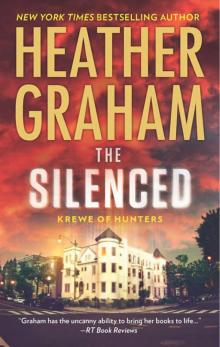 The Silenced
The Silenced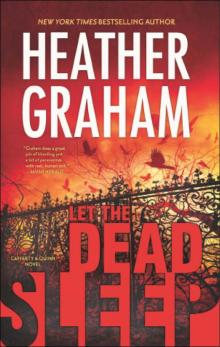 Let the Dead Sleep
Let the Dead Sleep Christmas, the Krewe, and Kenneth
Christmas, the Krewe, and Kenneth Big Easy Evil
Big Easy Evil Sinister Intentions & Confiscated Conception
Sinister Intentions & Confiscated Conception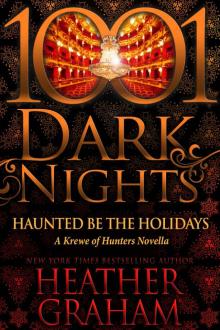 Haunted Be the Holidays: A Krewe of Hunters Novella
Haunted Be the Holidays: A Krewe of Hunters Novella Blood Red
Blood Red A Perilous Eden
A Perilous Eden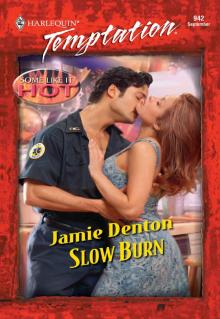 Slow Burn
Slow Burn Strangers In Paradise
Strangers In Paradise Bitter Reckoning
Bitter Reckoning Krewe of Hunters, Volume 1: Phantom Evil ; Heart of Evil ; Sacred Evil ; The Evil Inside
Krewe of Hunters, Volume 1: Phantom Evil ; Heart of Evil ; Sacred Evil ; The Evil Inside Do You Fear What I Fear?
Do You Fear What I Fear? The Face in the Window
The Face in the Window Krewe of Hunters, Volume 3: The Night Is WatchingThe Night Is AliveThe Night Is Forever
Krewe of Hunters, Volume 3: The Night Is WatchingThe Night Is AliveThe Night Is Forever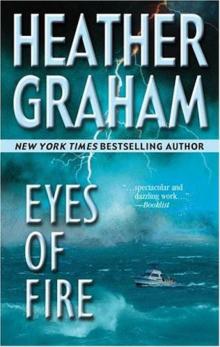 Eyes of Fire
Eyes of Fire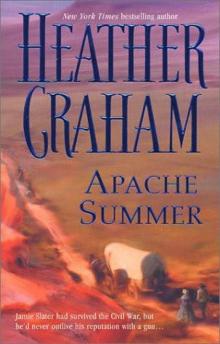 Apache Summer sb-3
Apache Summer sb-3 Sensuous Angel
Sensuous Angel In the Dark
In the Dark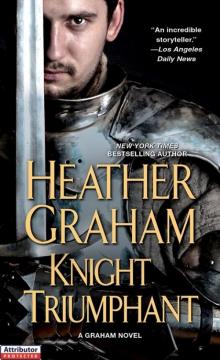 Knight Triumphant
Knight Triumphant Hours to Cherish
Hours to Cherish Tender Deception
Tender Deception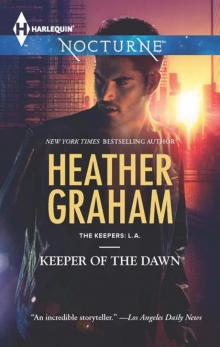 Keeper of the Dawn tkl-4
Keeper of the Dawn tkl-4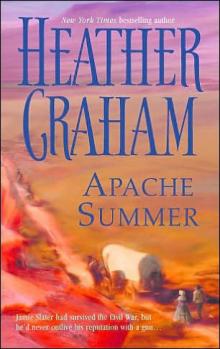 Apache Summer
Apache Summer Between Roc and a Hard Place
Between Roc and a Hard Place Echoes of Evil
Echoes of Evil The Game of Love
The Game of Love Sacred Evil (Krewe of Hunters)
Sacred Evil (Krewe of Hunters) Bougainvillea
Bougainvillea Tender Taming
Tender Taming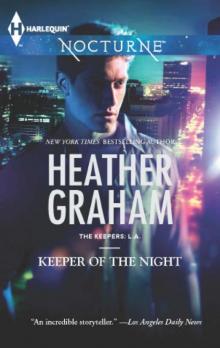 Keeper of the Night (The Keepers: L.A.)
Keeper of the Night (The Keepers: L.A.)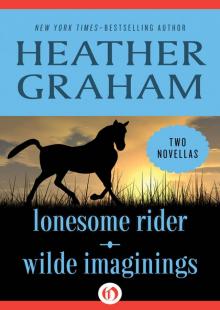 Lonesome Rider and Wilde Imaginings
Lonesome Rider and Wilde Imaginings Lucia in Love
Lucia in Love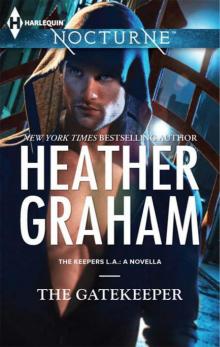 The Gatekeeper
The Gatekeeper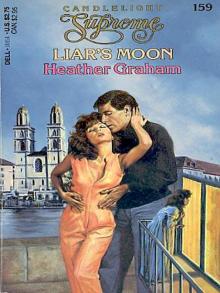 Liar's Moon
Liar's Moon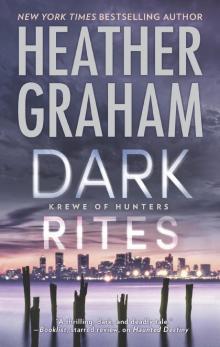 Dark Rites--A Paranormal Romance Novel
Dark Rites--A Paranormal Romance Novel A Season for Love
A Season for Love Krewe of Hunters, Volume 6: Haunted Destiny ; Deadly Fate ; Darkest Journey
Krewe of Hunters, Volume 6: Haunted Destiny ; Deadly Fate ; Darkest Journey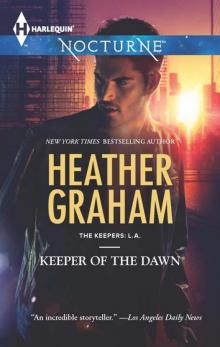 Keeper of the Dawn (The Keepers: L.A.)
Keeper of the Dawn (The Keepers: L.A.)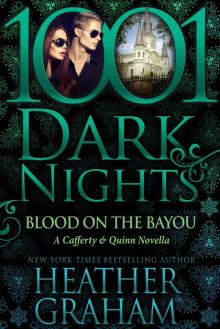 Blood on the Bayou: A Cafferty & Quinn Novella
Blood on the Bayou: A Cafferty & Quinn Novella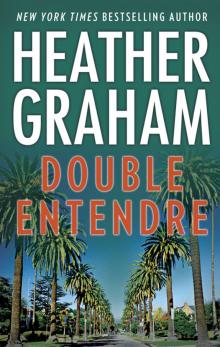 Double Entendre
Double Entendre A Perfect Obsession--A Novel of Romantic Suspense
A Perfect Obsession--A Novel of Romantic Suspense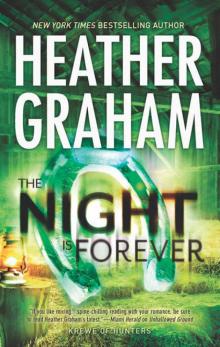 The Night Is Forever koh-11
The Night Is Forever koh-11 The Di Medici Bride
The Di Medici Bride When Irish Eyes Are Haunting: A Krewe of Hunters Novella
When Irish Eyes Are Haunting: A Krewe of Hunters Novella The Keepers: Christmas in Salem: Do You Fear What I Fear?The Fright Before ChristmasUnholy NightStalking in a Winter Wonderland (Harlequin Nocturne)
The Keepers: Christmas in Salem: Do You Fear What I Fear?The Fright Before ChristmasUnholy NightStalking in a Winter Wonderland (Harlequin Nocturne) Never Fear
Never Fear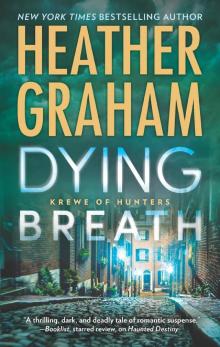 Dying Breath--A Heart-Stopping Novel of Paranormal Romantic Suspense
Dying Breath--A Heart-Stopping Novel of Paranormal Romantic Suspense If Looks Could Kill
If Looks Could Kill This Rough Magic
This Rough Magic Heather Graham's Christmas Treasures
Heather Graham's Christmas Treasures Hatfield and McCoy
Hatfield and McCoy The Trouble with Andrew
The Trouble with Andrew Never Fear - The Tarot: Do You Really Want To Know?
Never Fear - The Tarot: Do You Really Want To Know?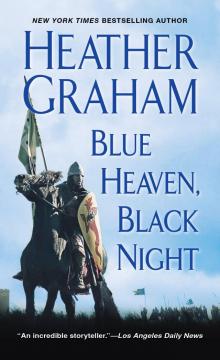 Blue Heaven, Black Night
Blue Heaven, Black Night Forbidden Fire
Forbidden Fire Come the Morning
Come the Morning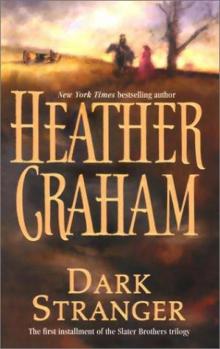 Dark Stranger sb-4
Dark Stranger sb-4 Lie Down in Roses
Lie Down in Roses Red Midnight
Red Midnight Krewe of Hunters Series, Volume 5
Krewe of Hunters Series, Volume 5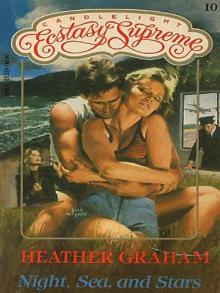 Night, Sea, And Stars
Night, Sea, And Stars Snowfire
Snowfire Quiet Walks the Tiger
Quiet Walks the Tiger Mistress of Magic
Mistress of Magic For All of Her Life
For All of Her Life Runaway
Runaway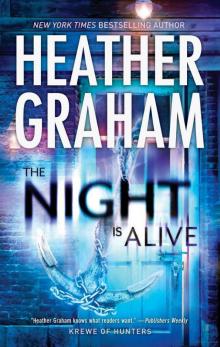 The Night Is Alive koh-10
The Night Is Alive koh-10 The Evil Inside (Krewe of Hunters)
The Evil Inside (Krewe of Hunters)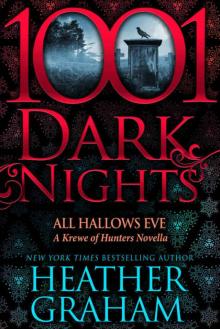 All Hallows Eve: A Krewe of Hunters Novella (1001 Dark Nights)
All Hallows Eve: A Krewe of Hunters Novella (1001 Dark Nights) Tomorrow the Glory
Tomorrow the Glory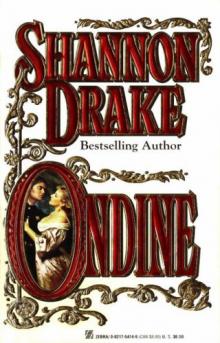 Ondine
Ondine Angel of Mercy & Standoff at Mustang Ridge
Angel of Mercy & Standoff at Mustang Ridge Bride of the Tiger
Bride of the Tiger When Next We Love
When Next We Love Heather Graham Krewe of Hunters Series, Volume 4
Heather Graham Krewe of Hunters Series, Volume 4 A Season of Miracles
A Season of Miracles Realm of Shadows (Vampire Alliance)
Realm of Shadows (Vampire Alliance) When We Touch
When We Touch Serena's Magic
Serena's Magic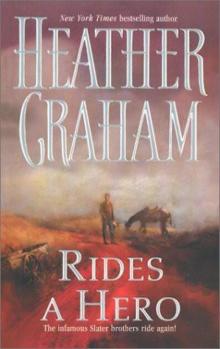 Rides a Hero sb-2
Rides a Hero sb-2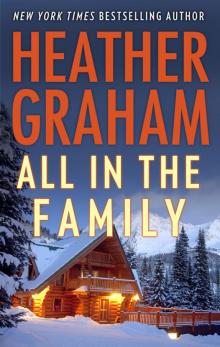 All in the Family
All in the Family Handful of Dreams
Handful of Dreams A Stranger in the Hamptons
A Stranger in the Hamptons Krewe of Hunters, Volume 2: The Unseen ; The Unholy ; The Unspoken ; The Uninvited
Krewe of Hunters, Volume 2: The Unseen ; The Unholy ; The Unspoken ; The Uninvited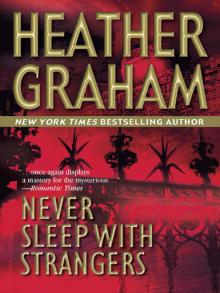 Never Sleep With Strangers
Never Sleep With Strangers Eden's Spell
Eden's Spell A Magical Christmas
A Magical Christmas Forever My Love
Forever My Love King of the Castle
King of the Castle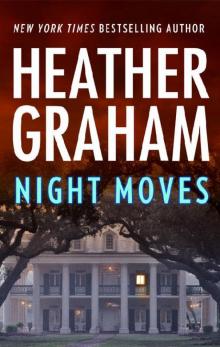 Night Moves (60th Anniversary)
Night Moves (60th Anniversary) The Island
The Island Borrowed Angel
Borrowed Angel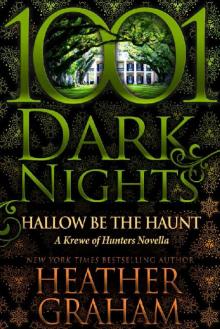 Hallow Be the Haunt: A Krewe of Hunters Novella
Hallow Be the Haunt: A Krewe of Hunters Novella Why I Love New Orleans
Why I Love New Orleans The Last Cavalier
The Last Cavalier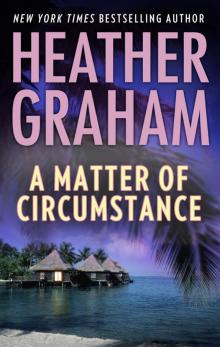 A Matter of Circumstance
A Matter of Circumstance Heather Graham's Haunted Treasures
Heather Graham's Haunted Treasures Tempestuous Eden
Tempestuous Eden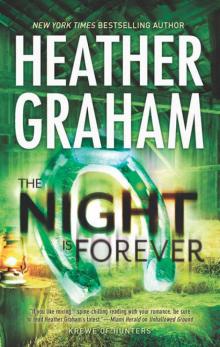 Krewe 11 - The Night Is Forever
Krewe 11 - The Night Is Forever